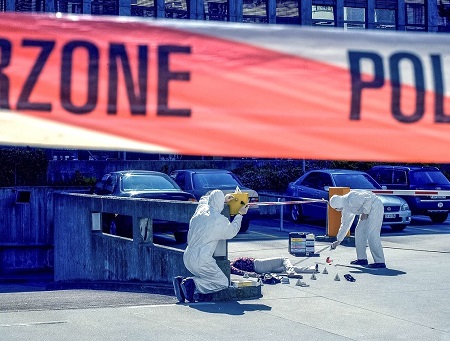What Trauma Scene Cleanup Actually Involves
 Although trauma scene cleanup is an essential service, it is frequently misunderstood. Tragedy leaves behind?more than scars. This process is nuanced, making it necessary to understand why it matters and?the professionals behind this sensitive service.
Although trauma scene cleanup is an essential service, it is frequently misunderstood. Tragedy leaves behind?more than scars. This process is nuanced, making it necessary to understand why it matters and?the professionals behind this sensitive service.
The Scope of Trauma Scene Cleanup
Mopping the?floor is inadequate for dealing with a trauma scene. They deal with all situations, from crime scenes and accidents to unattended deaths. Each scenario has a unique challenge, requiring different skill sets and specialized equipment. These specialists ensure the most contaminated?areas are sanitized to prevent health risks. If you need professional trauma scene cleanup services, Specialized Cleaning Solutions offers compassionate and thorough remediation to restore safety and peace of mind.
Safety First: Protecting Everyone Involved
One?of the most important aspects of trauma scene cleanup is safety. Experts are all trained not only?to manage the problem of biohazards—blood, bodily fluids, and medical wastes containing other potentially infectious materials. Materials also dictate the use of protective gear (gloves, masks, suits, etc.) that the personnel must wear to avoid exposure. The strict protocols help keep all involved free from life-threatening?pathogens.
The Importance?of Compassion and Sensitivity
But assisting?someone through the post-traumatic process is not a technical skill. That compassion is a?necessary ingredient in this work. Cleanup professionals often deal with people in the field who are grieving and have experienced loss. It reduces the emotional trauma for impacted families?and communities by providing help and understanding.
Specialized Tools and?Techniques
The trauma scene cleanup uses advanced techniques and?cutting-edge technology. Good cleaners based?on enzymes can efficiently dissolve biological matter. Vacuumers and air scrubbers specialize in removing contaminants from surfaces or air. Such tools ensure a space is clean and safe for future use.
Legal and Regulatory Compliance
It is?essential to adhere to local, state, and federal biosecurity guidelines. These?regulations relate to biohazardous materials’ storage, transport, and disposal. Compliance with these regulations also?helps protect the environment and public health.
Mental Health of Cleanup?Workers
This type of work can have a significant emotional impact. Daily exposure to upsetting situations can profoundly affect one’s mental health. Support networks and counselling services often aid these professionals in coping with the psychological effects of their jobs. Maintaining mental health is crucial for transitioning from fitness to ferocity.
Education and Training: Building Expertise
Professional trauma scene cleanup programmers equip professionals with the information they need to launch their careers or enhance their performances. These courses teach about identifying a?biohazard, cleaning, safety, and more. Their continuous education ensures that these experts are up to date regarding the newest developments in?this field, so they are always prepared regardless of the situation.
Discretion and?Respect Should Be a Practice
Discretion and respect in this space are super?important. Individuals frequently work?in private residences or sensitive locations. This process is due to the desire to avoid creating a spectacle for the individuals involved. Trust is built with clients when respect is given, allowing professionals to do what they do best?, and everything is done according to consideration and efficiency.
Issues and?Misunderstandings
The job of a trauma cleanup specialist includes?numerous challenges, one of which is a misunderstanding due to the nature of the work. However, some people may misjudge?the intricacies and perils. The general public doesn’t know these things—inform them, and they can really value these professionals who provide such a vital service.
Conclusion
So,?trauma scene cleanup is a mix of skills, empathy, and heart. People doing such work do not simply perform the task of cleaning out?stuff. These experts ensure safety, compliance, and emotional support at vulnerable times and?help provide invaluable service to communities. Knowing their work deepens the understanding of their efforts in bringing environments back?to safety and normality.